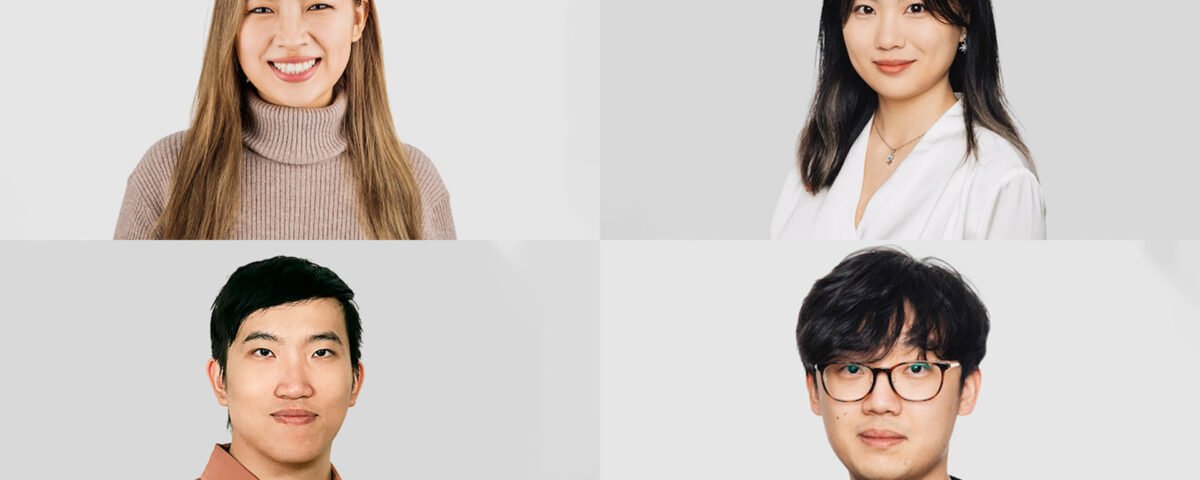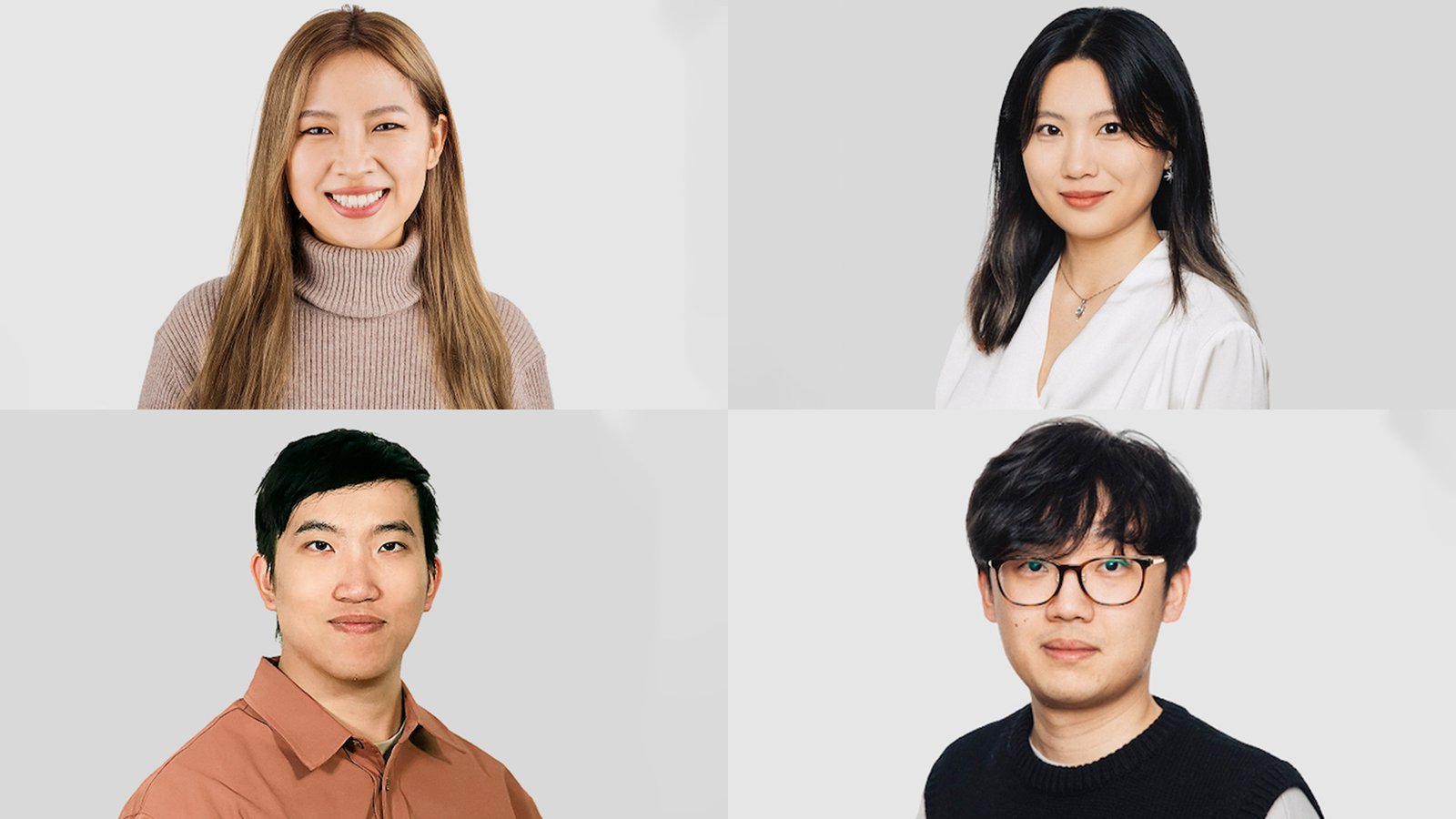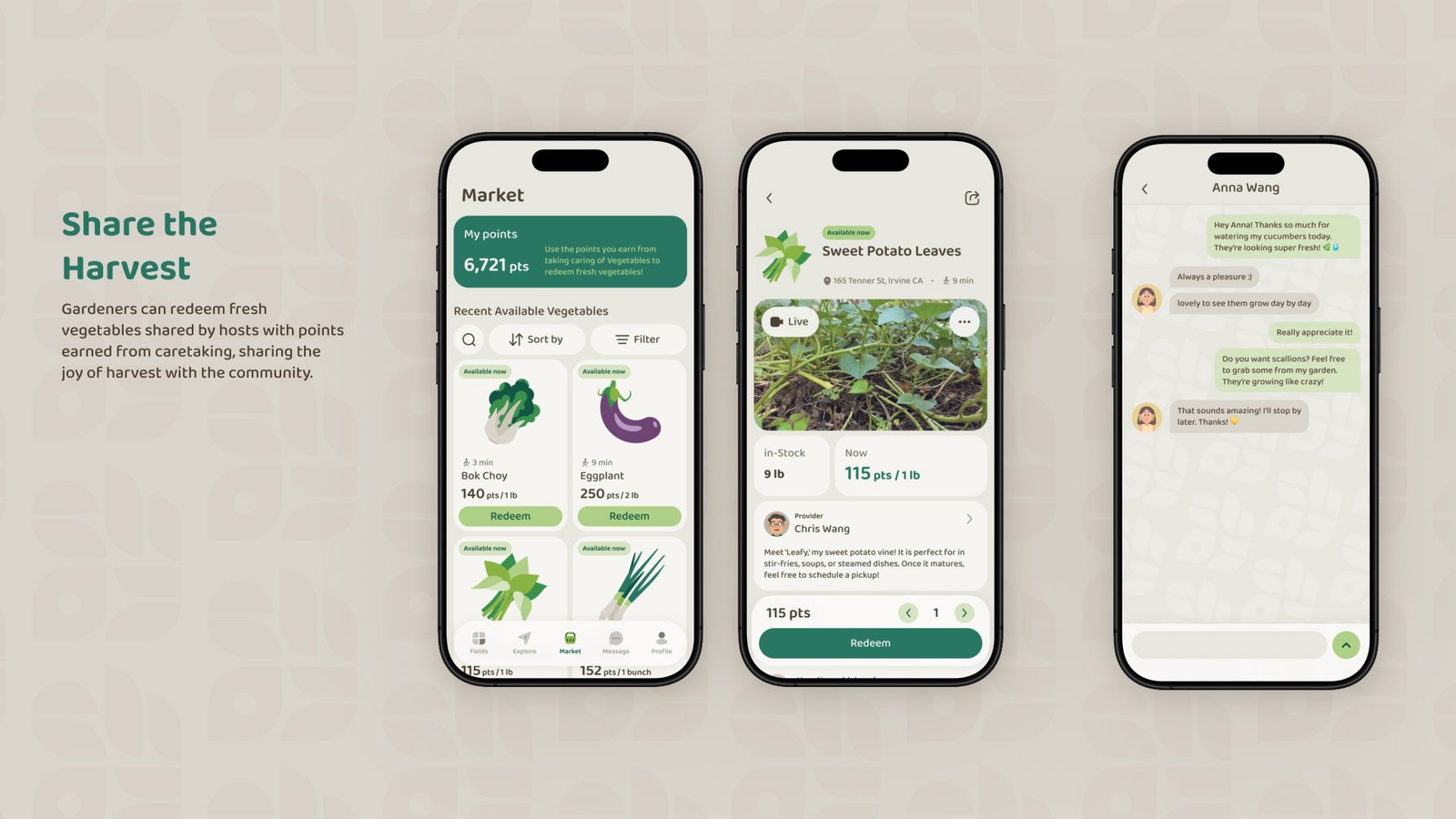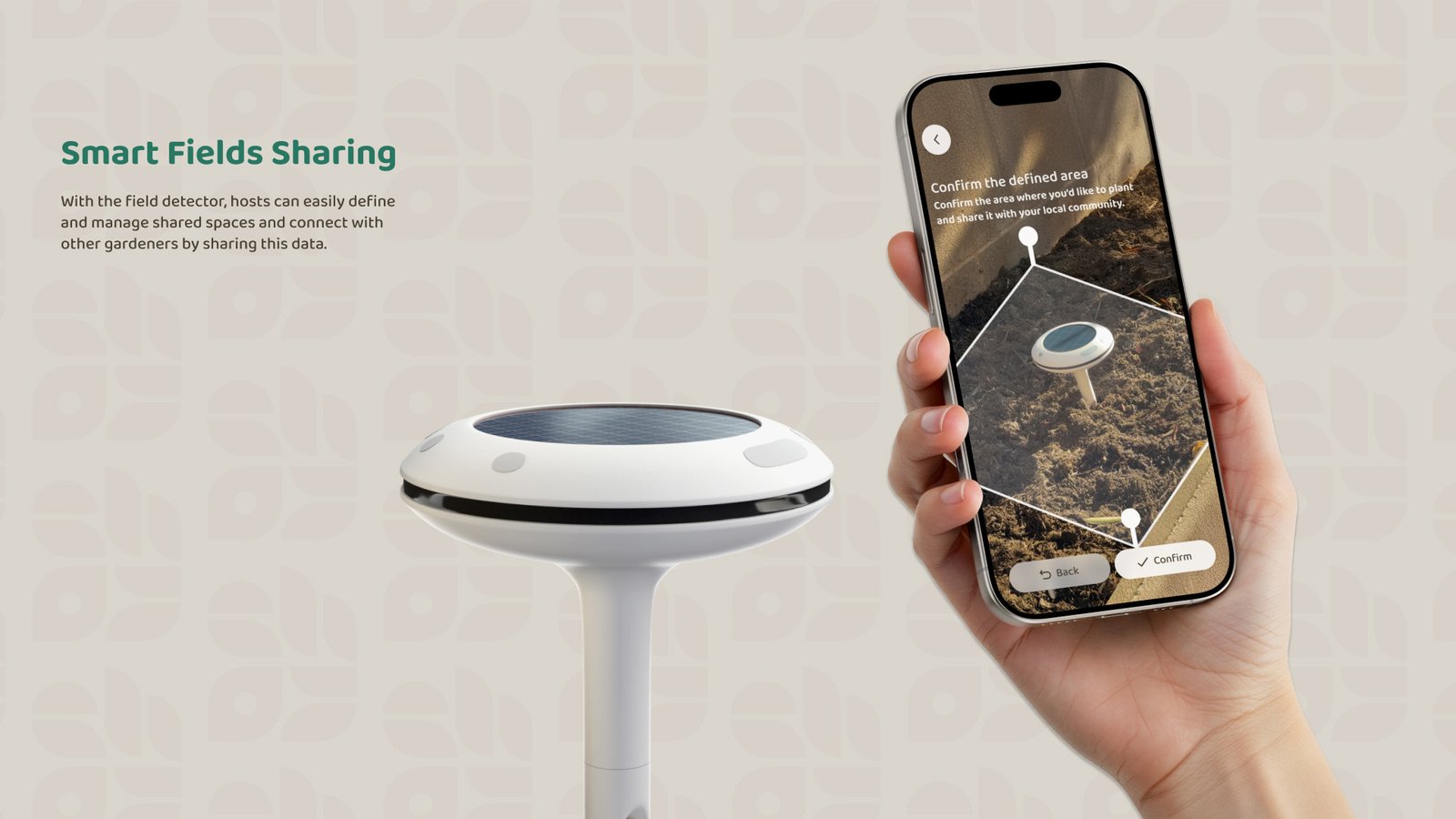
Engineering Intelligence: Shishir Tewari Shares His Future for Data Systems
June 12, 2025
Access Offshoring’s Tiffany English on the Future of Global Talent Partnerships
June 12, 2025Choy Team
Yiran Mao, Zaiying Li, Qianyue Yuwen, and Hongming Li are four designers from China and graduates of ArtCenter College of Design. Together, they created Choy, the Community Garden Sharing Hub, to connect people, culture, and environment through thoughtful design.
We’re a team of four designers, all originally from China and graduates of ArtCenter College of Design. While we don't operate as a formal agency, we came together for this project, each bringing a unique perspective from different design disciplines—like interaction, environmental, visual communication, and strategy.
Our journey into design was largely driven by a shared belief in its potential to foster deeper connections: between people, their communities, their cultural roots, and the environments they inhabit. We see design not just as problem-solving, but as a way to nurture relationships and meaning in everyday life, which was the core motivation behind creating Choy.
We submitted Choy to the MUSE Creative Awards, drawn by its focus on creative excellence, innovation, and lasting impact. We felt Choy embodied that spirit, as it centers on using design to nurture community, sustainability, and cultural connection. Winning this award is incredibly meaningful.
Personally, as early-career designers, it’s a huge encouragement and validation that our approach—human-centered, culturally sensitive, and values-driven design—resonates. Professionally, it affirms that thoughtful, perhaps “quietly powerful” design has a place and can spark interest. The award has already opened new conversations and strengthened our commitment to pursuing genuinely meaningful work.
The story behind Choy began with simple, personal observations: the quiet joy and cultural connection found in home gardening, especially growing vegetables tied to our heritage, contrasted with the underutilized green spaces and sometimes disconnected nature of urban life. We saw an opportunity to bridge this gap. Inspired by both the resourcefulness of everyday home gardening and the communal spirit of shared farms, we envisioned a way to weave these threads together in a modern, accessible format using smart technology and collaborative principles.
In today’s industry, we feel Choy represents a move towards design that is deeply rooted in everyday life, cultural context, and genuine human needs. It’s about more than just aesthetics or technological novelty; it embodies how design can act as a gentle catalyst for community building, sustainability, and preserving cultural practices.
It stands for “quietly powerful” interventions—thoughtful solutions that address real needs and foster connection in subtle yet meaningful ways, showing how tradition and possibility can creatively coexist in our contemporary world.
We think what made our project stand out was how grounded it was in real community needs while still imagining a future system. Even though the project was speculative, we kept asking ourselves: Would this actually help someone? Would this make sense to our grandparents or neighbors back home?
Also, each of us comes from a different design background—product, graphic, spatial, and UX—so we naturally thought about the problem from different angles. That made the final outcome feel more complete. We were constantly learning from each other, and that gave the project a lot of depth.
At first, it was actually hard to land in a shared direction. We had different strengths and ways of working, so it took a while to find our rhythm as a team. Sometimes we’d get stuck because we weren’t sure whose perspective to prioritize.
What helped was creating a shared vision early on—why we’re doing this, and who we’re designing for. Once we agreed on that, decisions got easier. We also gave each person more space to take ownership in their area of expertise, which really helped us move forward with more clarity and confidence.
For us, this was a big encouragement. It showed us that thoughtful, values-driven design does get noticed—even if it’s not flashy. We’ve had a few people reach out asking to learn more about the project, which has opened up new conversations and connections we didn’t expect.
It’s also made us feel more confident in our instincts. We’re still early in our careers, so this kind of recognition reminds us to keep following what feels meaningful, not just what feels trendy.
A few people told us they felt personally connected to the idea—even if they weren’t from the same cultural background. That meant a lot to us. One of our professors said the project felt “quietly powerful,” which stuck with us.
We also got some messages from people who said it made them think differently about how design can support community and care. Those small reactions reminded us why we made the project in the first place.
Start by designing, not perfecting. Choy began as an exploration of how watering plants might encourage neighborly interaction—but through prototyping and real conversations, we realized food carries deeper social meaning. Gardening became more than care—it became a way to connect people across cultures and generations.
Our advice: build early, talk often, and let your users shape the direction. The strongest ideas often emerge through iteration and empathy. When your design is grounded in real lives and grows with real people, it naturally becomes something worth sharing.
We see the creative industry moving toward deeper integration with technologies like LLMs, AIGC, and XR. These tools open up exciting new possibilities—but as designers, we believe technology should enhance, not limit, the user experience.
In our past work, we’ve explored ways to integrate physical interaction with virtual systems, from spatial computing to generative interfaces. But we always start with a question: What does the best experience look like—emotionally, socially, culturally? Even if the technology isn’t quite there yet, we use design to imagine what could be.
We embrace emerging technologies not as boundaries, but as bridges. Our goal is to stay grounded in human-centered thinking while pushing the edge of what’s possible.
We totally understand that feeling—when we submitted Choy, we also questioned whether it was “ready enough.” But we’ve learned that awards aren’t just about polished outcomes—they’re about sharing your process, perspective, and voice.
For early-stage designers, participating is less about winning, and more about clarifying your thinking, articulating your intent, and getting feedback from a wider audience. That itself is incredibly valuable.
Our advice is: don’t wait for perfection. If your work is thoughtful, honest, and rooted in real questions, it deserves to be part of the conversation. The confidence comes not from certainty, but from choosing to show up.
We believe that meaningful creativity is deeply rooted in real, everyday life. Inspiration doesn’t always come from bold imagination alone—it often emerges from closely observing people’s routines, behaviors, and needs.
While speculative thinking is valuable, connecting those ideas to tangible human experiences is what gives them resonance. Sometimes, the most compelling results come from bridging unexpected concepts with subtle, often overlooked, realities. We encourage fellow creatives to keep one eye on the future and one foot grounded in the present.
This achievement belongs to every member of our team. Choy is the result of diverse minds coming together—each person bringing in their own perspective, skillset, and voice. We come from different backgrounds, but what made this project possible was a shared sense of trust, openness, and mutual respect.
Everyone contributed not only what they were good at, but also invested in understanding and supporting each other. That collaborative spirit was the foundation of everything we built, and we’re proud of what we created together.
We’ll continue exploring the core themes behind Choy—urban gardening, cultural storytelling, and community-based interaction. Our next steps involve developing more accessible tools and interaction models that can bring these ideas into everyday spaces.
We’re also interested in applying this human-centered, life-rooted design approach to other domains, with the hope of creating quiet, thoughtful interventions in people’s daily lives.
Choy Team
Yiran Mao, Zaiying Li, Qianyue Yuwen, and Hongming Li are four designers from China and graduates of ArtCenter College of Design. Together, they created Choy, the Community Garden Sharing Hub, to connect people, culture, and environment through thoughtful design.
Explore the journey of Lawrence Kok Hua Yang, the Gold Winner of the 2025 MUSE Creative Awards. He is the founder of LK Group Tech, leading with a passion for impactful artistry that inspires and uplifts, turning bold ideas into creations that connect cultures and spark positivity.







